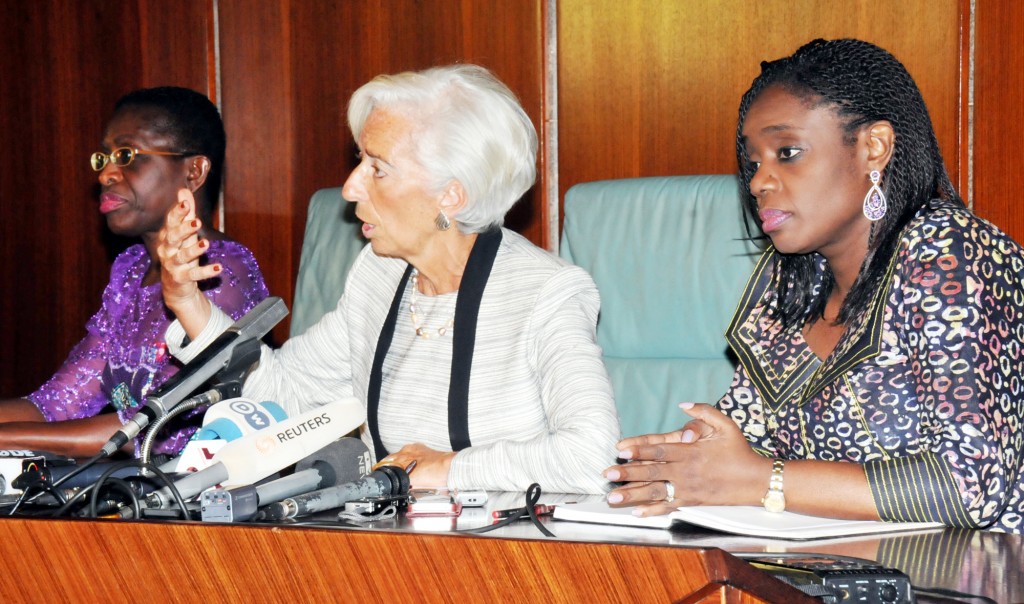Nigeria, which is going through its worst economic crisis in years, has not turned to the International Monetary Fund (IMF) for financial assistance because it is “not sick”, its finance minister said.
Africa’s top oil exporter, which has the continent’s biggest economy, has been hit hard by the fall in crude prices since oil sales account for around 70 percent of its income.
The economy grew 2.8 percent last year, its slowest pace in decades, and in March annual inflation rose to a near four year high of 12.8 percent.
RELATED: Low Oil Prices: Buhari Requests $3.5 Billion Emergency Loan From World Bank
RELATED: Austerity Bailout: IMF Boss, Lagarde Arrives Nigeria For Talks With Buhari, Others
Last month the IMF said it had again cut its growth forecast for Nigeria, predicting that gross domestic product growth would slow to 2.3 percent in 2016. It has said it hopes exchange rate limits imposed by Nigeria will be removed.
The central bank has resisted calls to devalue the naira currency, though a Reuters poll this week predicted that a dollar shortage, which has hamstrung businesses that need the greenback for imports, would prompt a devaluation by September.
“Nigeria is not sick and even if we are, we have our own local remedy,” said Finance Minister Kemi Adeosun on Friday at a panel discussion in Washington where she attended spring meetings of the IMF and World Bank.
RELATED: What Nigeria Needs Are Not Loans But Fiscal Discipline – IMF Boss
RELATED: IMF Boss Slams Buhari’s Monetary Policy On Naira, Foreign Exchange
Adeosun’s spokesman, Festus Akanbi, said the comment was “an apparent response to a question on why the government has refused to apply for IMF loans”.
Discussions between Nigeria and the World Bank are continuing on a possible loan or credit facility that would be tied to policy reforms.
“We have resolved to build resilience into the country’s economy to hedge against future oil shocks. We are doing a combination of things to diversify our economy,” added Adeosun.
Nigeria wants to boost non-oil income by 87 percent to offset the impact of the oil slump and squeeze informal small traders to boost tax revenues by 33 percent, according to government plans seen by Reuters.
President Muhammadu Buhari plans a record 6.06 trillion naira ($30.6 billion) budget to stimulate the economy but he is yet to sign the bill into law due to wrangling with parliament.
via Reuters







